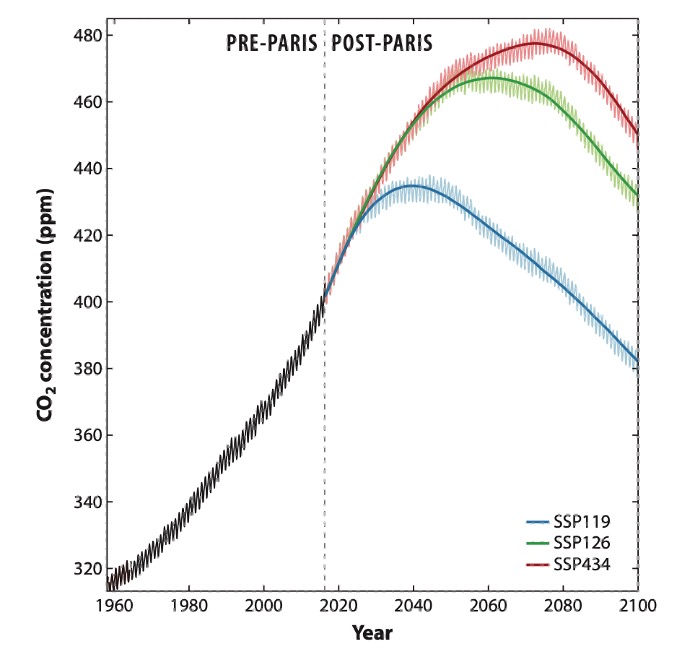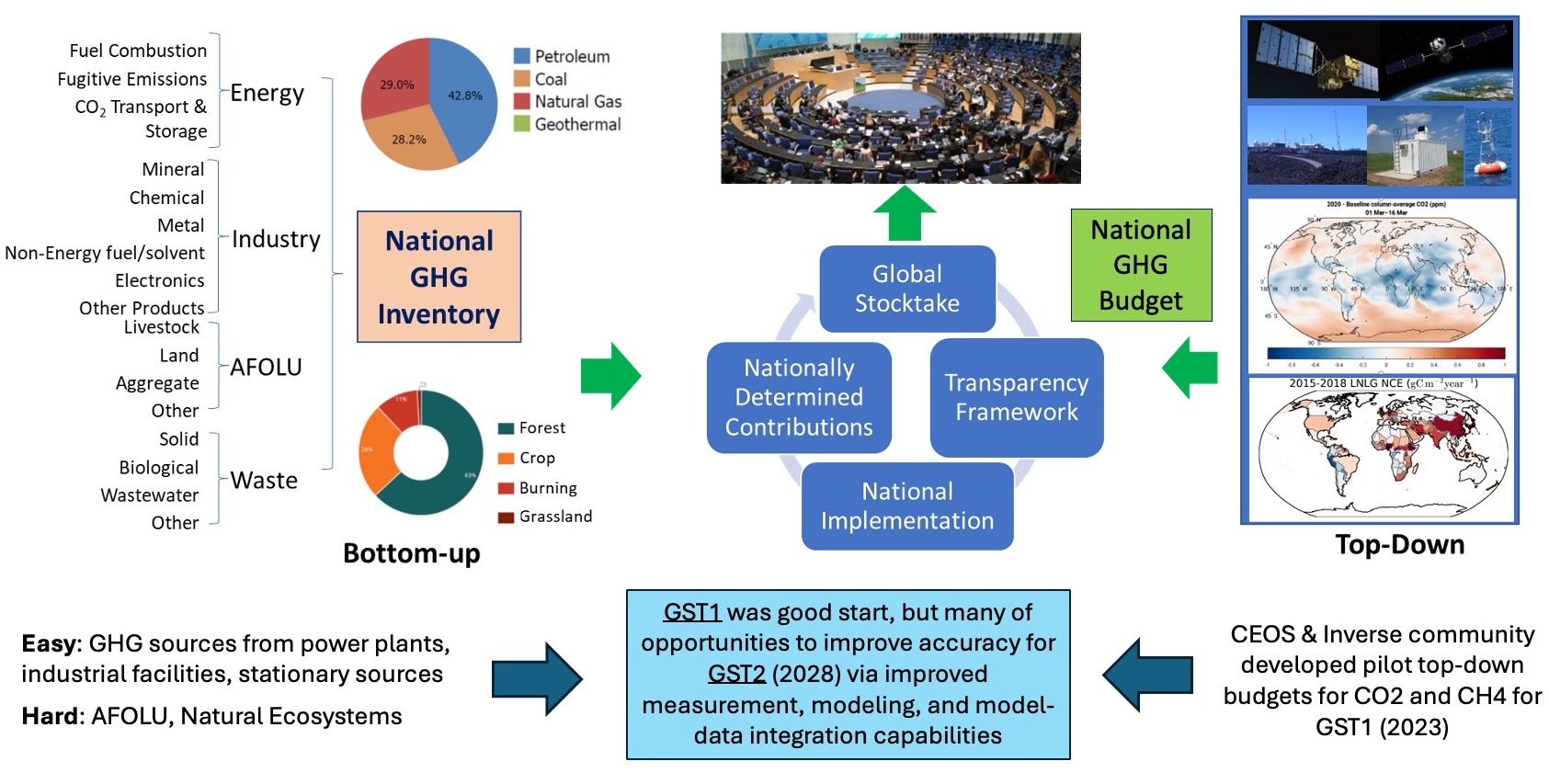Workshops
Carbon Workshop Series:
Taking Stock of Stocks — Tracking GHG Emissions and Removals for the Global Stocktake
September 23-24, 2024
383 Hill Annex, California Institute of Technology, Pasadena, CA, USA
8:30am – 5:00pm, Pacific Time Zone (PT), exact times TBC
Carbon Cycle-Climate Feedbacks in Post-Paris World
- Paris calls for stabilizing climate at 1.5C
- Reduce emissions, maintain and manage sinks, stay within remaining carbon budget (RCB)

Schimel, 2024, Annual Reviews |
3 Major Challenges Post-Paris
|
Goals of Carbon Workshop Series
Three “Pre-Decadal” carbon workshops over the next 1.5 years to establish a community agreed upon path for leveraging existing and future tools to improve our understanding of, and ability to predict, carbon-climate feedbacks over the next several decades under more extreme climate and changing emissions.Main Goals:
- Identify outstanding challenges that stand in the way of progress
- Identify gaps that exist with respect to knowledge and data
- Identify opportunities for progress including potential ways to fill gaps with data
Three workshops are organized around the following themes:
- Stock of Stocks: Establish state of the art for assessment of carbon fluxes and stocks; identify key remaining gaps and uncertainties across different sectors (land, ocean, urban, agricultural, forests, critical regions).
- Delta Stocks (Feedbacks): Determine how stocks are responding to changing emissions and climate; identify gaps/uncertainties in our ability to track and understand feedbacks.
- Predicting Feedbacks: Establish state of the art for combining models and observations to constrain predictions, and identify how new observations and data assimilation approaches can provide more robust and realistic predictions, especially under increasing extremes and reduced emissions.
Workshop 1: Taking Stock of Stocks
Tracking GHG Emissions and Removals for the Global Stocktake

Stock of Stocks Workshop Themes
Theme 1: GHG Information for Stocktake
- Engagement with political entities
- Top-down approaches
- Machine learning and upscaling
- Carbon Cycle Data Assimilation Systems
- GHG Center
Theme 2: Reconciling Observational Approaches and Models
- Benchmarking
- RECAPP
- GEOS-GHG
Theme 3: Key GHG Sectors
- Sectors: Urban, Forests, Agriculture
- Critical Regions / Tipping Points: Arcitc, Ocean, Coastal, Tropics, Drylands
Theme 4: Future GHG Observing Systems
- Carbon-I: Frankenberg
- Hyperspectral: Serbin, Schimel
- Airborne: Miller
Meeting Logistics
Place:
383 Hill Annex, California Institute of Technology, Pasadena, CA, USA
Dates:
September 23-24, 2024, 8:30am – 5:00pm, Pacific Time Zone (PT), exact times TBC.
RSVP:
Invitation only
Format:
In-person
Travel tips:
- By air:
(1) Los Angeles International airport (LAX): you can then reach Pasadena by taxi/rideshare/rental car (~45min-1h), or public transport (shuttle to downtown LA + metro to Pasadena, ~1h30min).
(2) Burbank Airport (BUR); you can then reach Pasadena by taxi/rideshare/rental car in ~25min. - By train:
Amtrak will get you to Los Angeles Union station, which is about 20min by metro or taxi/rideshare from Pasadena
Accommodation tips:
There are a number of hotel or homestay options (e.g. Airbnb) within the vicinity of Caltech or old town Pasadena. Some advantages of staying in old town Pasadena include (i) walkable & pleasant, and (ii) cafes, restaurants etc are all in walking distance, (iii) Caltech is attainable on foot or by public transport (Old town ~20-30min walk or short bus ride away from Caltech).
Format:
Each of four themes gets approximately half a day (negotiable)
- Short talks and Q/A for each speaker (<10 min)
- Parallel breakouts: Groups of 5-10 (~1 hour)
- Breakout reports and discussion (~30-60 min)
